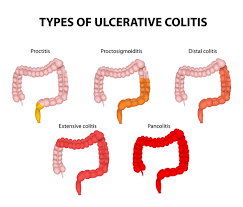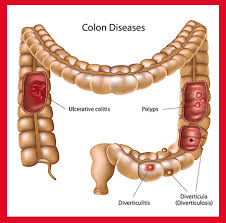When a person has Ulcerative Colitis, sores called ulcers develop inside the colon.

Symptoms of the disease include:
- abdominal pain
- Blood or pus in the stool
- Diarrhea
- Nausea
- rectal bleeding
- Fatigue
- Weight loss
Foods to be avoided:
Whole grain food:
You should avoid eating food made from any whole grain flour, such as:
- breads
- cereals
- pastas
- noodles
- macaroni
Brown rice and other whole grain starches:
Avoid the following whole grain foods:
- brown rice
- quinoa
- buckwheat
- Oats
- wild rice
Nuts:
It’s best to avoid the following nuts:
- walnuts
- hazelnuts
- pecans
- cashews
- almonds
- macadamia nuts
- peanuts
- pistachios
Seeds:
Some seeds to avoid include:
- sesame seeds
- flax seeds
- millet
- pine nuts
- sunflower seeds
- pumpkin seeds
- wild rice
Dried peas, beans, and lentils:
Legumes, including beans, lentils, and peas, are high-fiber, high-protein foods. Because of the indigestible sugars in beans, they’re also notorious for causing gas. If you are experiencing a UC flare-up, you’ll want to pass on the following:
- all beans, including chickpeas
- Adzuki beans
- Soy nuts, including soybeans and edamame
Foods that can be taken:
While your diet may be restricted if you are experiencing a UC flare up, it doesn’t have to be boring. Focus on the foods that you can eat rather than the foods you should avoid. The foods you can eat (unless you have an identified allergy or intolerance to any of the foods below) include:
- white bread without seeds
- white pasta, noodles, and macaroni
- white rice
- crackers and cereals made with refined white flour
- Canned, cooked fruits
- Cooked vegetables without skins or seeds
- Pureed vegetable soups
- Tender, soft meats (no gristle or skin), fish, and eggs
- Peanut and other nut butters
- oils like olive oil and coconut oil






